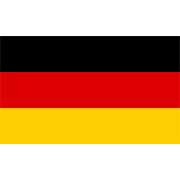Fiscal subject related
The levy is designed to help cover the cost of disposing of products that cannot be recycled or reused, such as single-use plastics, electronics, and batteries. It is part of Germany's wider efforts to reduce waste and improve sustainability, and it is expected to have a significant impact on businesses that produce or sell such products.
As the legislation awaits final approval, businesses are being urged to prepare for compliance and monitor any legal developments that may arise. They should also consider the potential impact on their operations, including supply chains and pricing, and take steps to adapt accordingly.
While the new levy is expected to be challenging for businesses, it is also seen as an important step towards a more sustainable future. As Germany continues to lead the way in environmental policy and regulation, it is likely that other countries will follow suit, making it even more important for businesses to prepare for the changes ahead.
Other news from Germany
Germany: Court Confirms Tax Authorities Can Request Tax-Relevant Emails During Audits
 Germany
Author: Ivana Picajkić
Germany
Author: Ivana Picajkić
German tax authorities are increasingly requesting tax-relevant emails during audits, and a 2025 Federal Fiscal Court ruling confirmed that such emails must be retained and disclosed when they contain relevant commercial or tax information. Read more
Subscribe to get access to the latest news, documents, webinars and educations.
Already subscriber? Login


Germany and France Update their Common E-Invoicing Standard
Germany and France will jointly update their hybrid e-invoice formats ZUGFeRD and Factur-X on 15 January 2026 to align with EN 16931 and support their upcoming B2B e-invoicing mandates. The new version expands technical capabilities, improves interoperability, and ensures full compatibility between both formats as Europe prepares for unified digital reporting under ViDA Germany and France have ann... Read more



Germany Lowers VAT on Food in Restaurants to 7% from 2026
 Germany
Author: Ivana Picajkić
Germany
Author: Ivana Picajkić
The German government has approved the Tax Amendment Act 2025. Starting January 1, 2026, the VAT rate for all food served in restaurants will be reduced to 7%. This change will support restaurants, cafés, bakeries, butchers, and catering businesses What changes on January 1, 2026? Food eaten on-site in restaurants will drop from 19% to 7% VAT. This creates a uniform 7% VAT rate for: din... Read more



German 2025-2028 TSE Replacement: Steps for POS Providers and Retailers
 Germany
Author: Ivana Picajkić
Germany
Author: Ivana Picajkić
Germany’s TSE replacement will unfold in multi-year waves from 2025 to 2028, because each hardware TSE expires five years after activation rather than on a single nationwide date. This long replacement cycle forces manufacturers, integrators, and retailers to plan strategically—balancing hardware swaps, cloud-TSE migrations, and clear communication to manage staggered deadlines and complex install... Read more



New document was uploaded: S4FiscalBackoffice Patch
S4F backoffice patch is intended for users who have already installed S4F backoffice and are intended to update existing installations to latest version. To do so apply only patches that are marked with version number that is newer than your currently installed instance of backoffice. Please make sure to install all available patches sequentially (without skipping). This package contains instruction, release notes, changelog and software packages required for deployment of this software component. Read more
Subscribe to get access to the latest news, documents, webinars and educations.
Already subscriber? Login


New document was uploaded: S4FiscalBackoffice Patch
S4F backoffice patch is intended for users who have already installed S4F backoffice and are intended to update existing installations to latest version. To do so apply only patches that are marked with version number that is newer than your currently installed instance of backoffice. Please make sure to install all available patches sequentially (without skipping). This package contains instruction, release notes, changelog and software packages required for deployment of this software component. Read more
Subscribe to get access to the latest news, documents, webinars and educations.
Already subscriber? Login


Germany: 2025 Reporting Rules for Electronic Recording Systems
 Germany
Author: Ivana Picajkić
Germany
Author: Ivana Picajkić
Starting in 2025, companies must electronically report all electronic recording systems at each business location to the tax office. Required data includes company details, system types, software versions, serial numbers, and acquisition dates, with automation options to minimize errors. An internal checklist ensures compliance and proper documentation. From 2025, all companies must report their e... Read more


